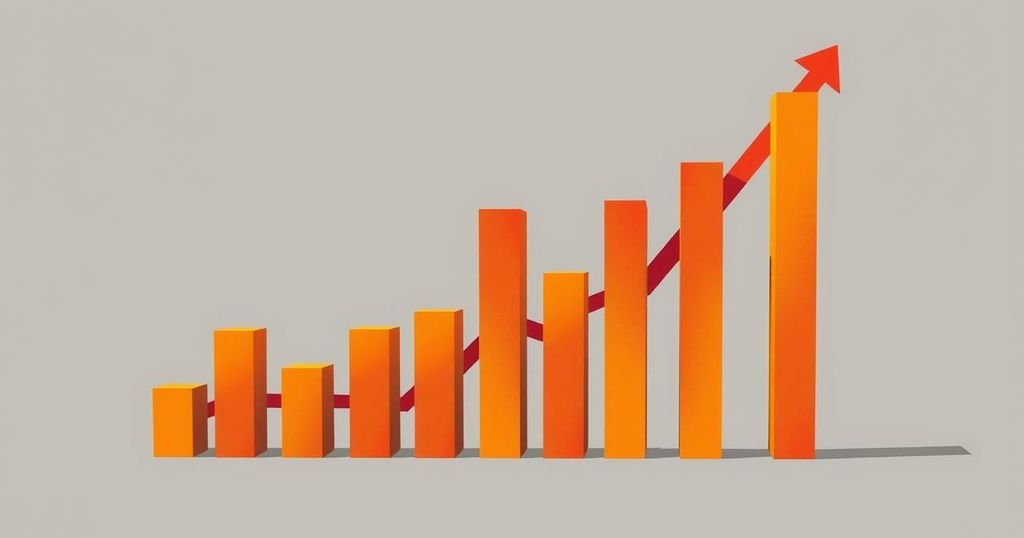Nigeria’s inflation rose to 23.1% in February 2025, driven by transport costs and consumer spending. Food inflation is also high, reaching 23.51%. Analysts anticipate further interest rate discussions, while the economy adjusts to earlier price shocks since President Tinubu took office.
Nigeria’s headline inflation increased to 23.1% in February 2025, primarily driven by higher transportation costs, which stemmed from rising gasoline prices and heightened consumer spending, according to the National Bureau of Statistics (NBS). This figure represents a decrease from 24.48% reported in January following recent rebasing efforts.
The NBS further reported that food inflation reached 23.51% in February, as consumers faced increasing costs for food, transportation, and energy. Analysts predict that a continuation of this trend may lead to discussions of further interest rate hikes in upcoming Monetary Policy Committee meetings.
Samuel Onyekanmi, an analyst at Norrenberger, commented, “I expect to see a slight increase in inflation, going by the frenzy buying typically associated with the festivities and noting that food inflation is still very much on the high, due to the seasonal effect.” He expressed skepticism regarding the achievement of the targeted 15% inflation rate in 2025 but indicated that future prospects could improve.
Despite the Central Bank of Nigeria’s efforts to stabilize the foreign exchange market, resulting in a stronger naira, the country is still grappling with the economic repercussions of price shocks since President Tinubu took office. The persistent high inflation figures indicate that the economy is still in a phase of adjustment.
In summary, Nigeria’s inflation has risen to 23.1%, influenced by increased transport costs and food prices. Analysts foresee potential interest rate hikes amidst ongoing economic adjustments due to recent price shocks. While there is hope for stability in the coming years, the immediate outlook remains challenging, particularly in achieving the desired inflation targets.
Original Source: thecondia.com




